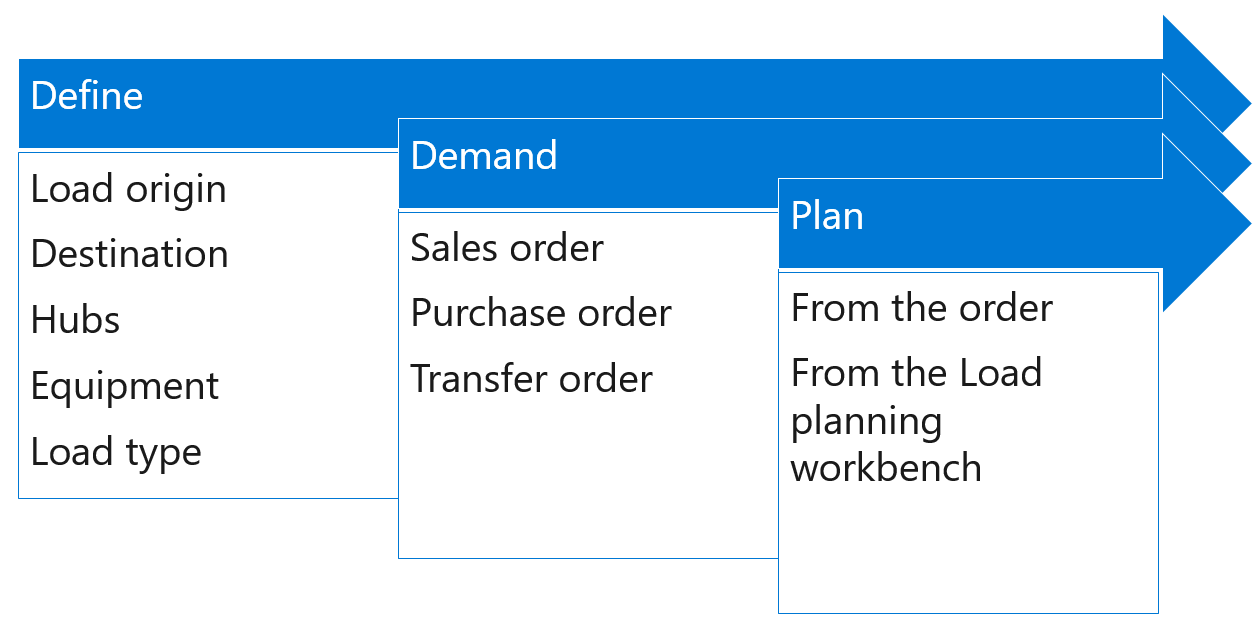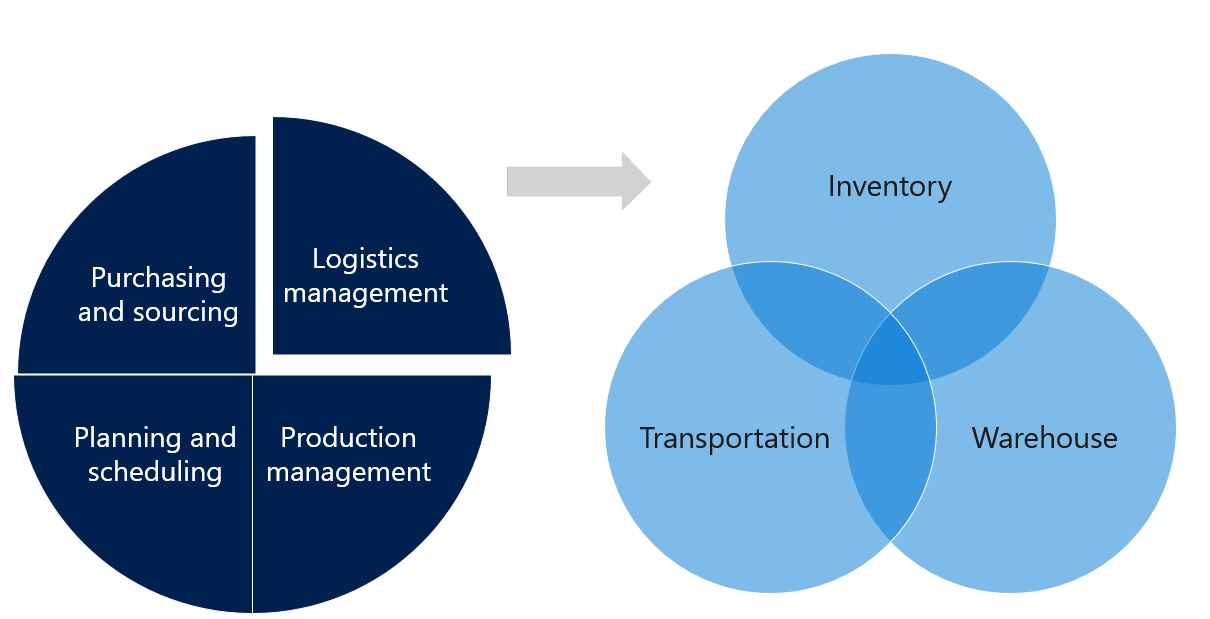Planning transportation management
Transportation planning can be based either on orders or on the shipments that are created based on those orders.
One of the most important pieces of setting up transportation management in Supply Chain Management involves gathering requirements. To gather requirements, ask your customer questions like the ones asked in the following sections.
What type of trucks and equipment will be used?
Sample questions that you can ask include:
- Are you using your own fleet or a third party?
- Are there capacity requirements for the equipment?
- Are there special requirements like frozen or refrigerated goods for certain items?
- Are there special requirements for specific customers?
Do you need to schedule inbound and outbound shipments?
Sample questions that you can ask include:
- How many dock doors do you have?
- Are the dock doors dedicated to inbound or outbound?
- Do you require carriers to call ahead?
- Do carriers have standard dock door times? For example, do they arrive at 3:00 PM every day?
- Do you typically have open dock doors at any time, and do you have staff to load or unload the trucks?
What carriers do you use, and do they have any special requirements?
Sample questions that you can ask include:
- Are no hazardous materials, or the like, allowed?
- Are certain carriers limited to certain countries and/or regions?
- Are certain carriers more expensive?
How will shipping charges be added to orders?
Sample questions that you can ask include:
- Will charges be passed on to customer orders?
- Should charges add to the landed cost of an inbound order?
- Are charges billed back to you by a third-party freight company?
- Do estimated charges need to be reconciled against the final invoice?
The answers to these questions and many more will help you determine what needs to be configured in the system. The answers will tell you important information such as:
- When equipment will need to be configured.
- Which load templates and requirements you require.
- How many carriers and types of services that you require.
- If appointment types and reasons will be required.
- What charges, fuel surcharges, and so on, should be configured.
- If special codes will need to be configured.
The shipments are not required for transportation planning.
Transportation management is the part of Supply Chain Management that plans, implements, and controls the efficient, effective forward and reverse flow and storage of goods, services, and related information between the point of origin and the point of consumption to meet customer requirements.

Transportation management is a subset of the logistics management function that focuses on the physical flow of goods and services and their associated information between the point of source and the point of consumption.
The following figure shows the integration of transportation management in Supply Chain Management.

Transportation management integrates supply and demand management functions, encompassing the planning and management of all activities that are involved in sourcing and procurement, conversion, and all logistic management activities.